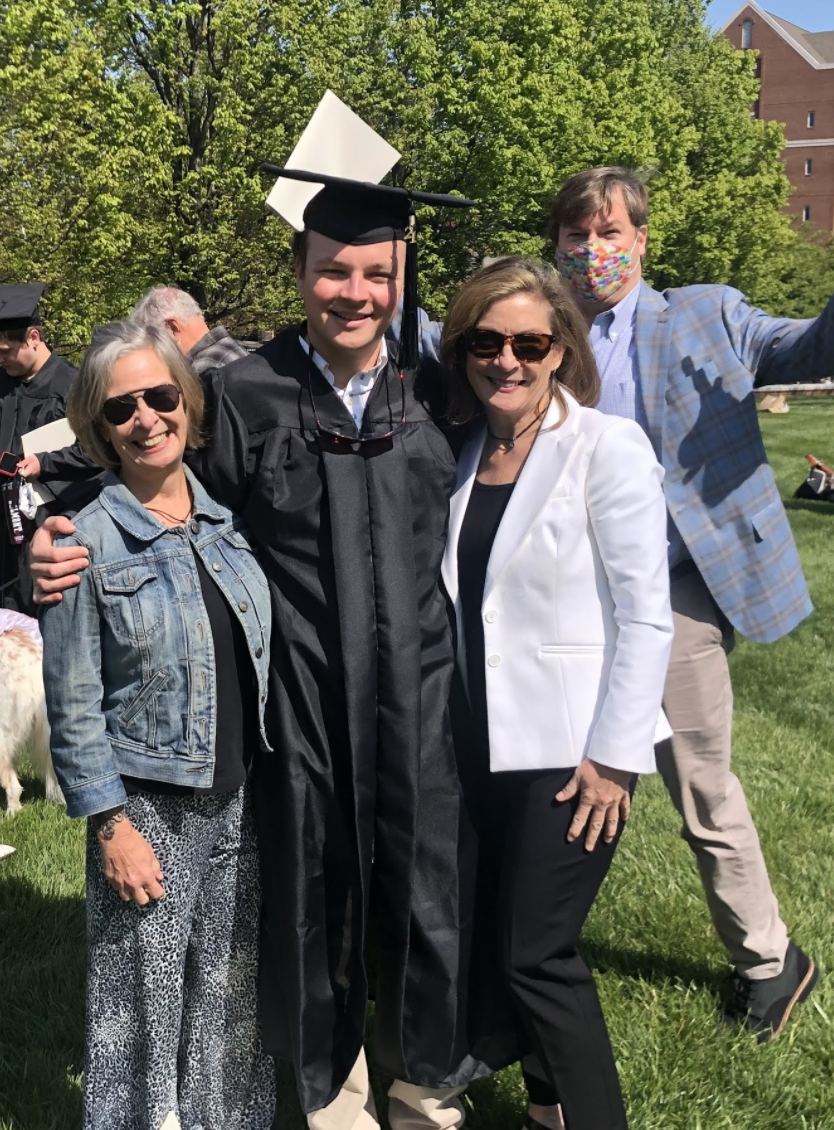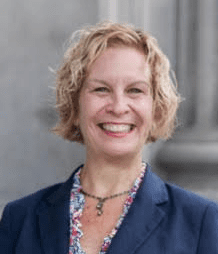Career Lessons for New Grads
May 27, 2021By Reba Hull Campbell
Each year on May 23, I celebrate my “adultiversary,” the first day of my first “real job.” I was a week out from getting my journalism degree at USC. That day, I arrived on Capitol Hill sporting big hair, a shoulder-padded power suit and aspirations to be a press secretary.
 That first job was the front office receptionist for a freshman Congressman from Florence, SC. I’ve always been grateful for the fact I was able to land my dream job as my first job (or at least the “foot in the door” job that got me to my dream job).
That first job was the front office receptionist for a freshman Congressman from Florence, SC. I’ve always been grateful for the fact I was able to land my dream job as my first job (or at least the “foot in the door” job that got me to my dream job).
Every year on my “adultiversary,” I update my list of career lessons to share with new graduates. Last year, I dedicated the list to my UofSC students who were graduating and struggling into the work world amid COVID.
This year, my list goes out to my nephew, John Peters. He graduated in April from Belmont University with aspirations for success in the film industry. I couldn’t be more proud of this young man! He followed his creative and professional dreams, got good grades, learned the art of making connections, and made some really great friends in the process.
I’d like to think John may have picked up on some of these career lessons in the many talks we’ve had in the car, sharing meals at our favorite spots and on our travels over the years. Regardless, the basics of these 20 lessons have been my touchpoints through my career and now into my retirement “bonus career.” I hope they may provide some inspiration for John and the class of 2021.
- Take risks. It’s OK to mess up sometimes. No one can expect perfection. It’s OK to be a beginner. You can often learn more from mistakes than successes. Yes, really, you can.
- Go to your boss with a solution, not a problem. Your boss is solving problems all day. Make her life easier by presenting a solution when you present a problem. Even if it’s not the solution that ultimately solves the problem, presenting an idea for a solution keeps your boss from dreading the sight of you at the door or your number on her phone.
- Cultivate strong writing skills. Solid writers are the people strong leaders want around the leadership table with them. Be the one who colleagues seek out to flesh out and articulate ideas clearly on paper with accurate spelling, grammar and punctuation. Even if writing isn’t a priority part of your job, be the one on the team who can quickly break down concepts on paper.
- Keep up with people. The students you sat next to in class. Your roommates and their friends. Bosses in your internships. Lab partners. Professors. The people you met through your campus activities. College deans. They will all have contacts within their professional circles. Stay in touch with them. You never know where a new job contact, sales relationship or your next stellar employee will come from. Every job change I ever made was the result of someone I knew making a connection for me.
- Be interested and interesting. Ask good questions and ask them often. Young professionals have a great deal to offer a work environment. Speak up when you have something to offer, but remember to balance your enthusiasm with senior-level colleagues’ experience.
- Keep learning your craft. Find out what your boss or leaders in your profession are reading or listening to (books, blogs, professional publications, podcasts, websites, etc). Seek out professional development opportunities. Pay for them yourself, if necessary. Join professional organizations and get involved.
- Be kind and remember that everyone carries their own sack of rocks. You never know what type of personal issues the co-worker who missed a deadline is dealing with at home or with his family.
- Write thank-you and follow-up notes (handwritten, not emailed). Collect business cards or contact info from people you meet at events, in meetings, or just out and about. A handwritten “nice to meet you” note will set you apart and help people you meet remember you. Technology is good, but the personal touch still matters (along with good penmanship).
- Travel any chance you get. Travel to small towns and big cities across the country and around the world. Don’t put off travel. You’ll never tell your grandchildren about that great trip you didn’t take because you were too busy at work.
- Plan the work before you work the plan. Having no plan gets you nowhere. Plans will change either by force or circumstance. Be flexible, but have a plan regardless of whether it’s a work project, a trip, a job search, a major purchase or an important life decision.
- Looking busy doesn’t equal being productive. The co-worker who crows about her heavy workload and long hours is probably much less productive than the one who is organized and prioritizes his days.
- Be a good listener and observer. It’s an old adage, but true – there’s a reason we have two ears and one mouth. Watching and listening to others can bring valuable insights to the words you eventually speak.
- Stay in the loop, but avoid the gossip. Be a “boundary spanner”— someone who is respected and trusted by people at all levels of the organization. Just don’t be the one who everyone counts on to know “the dirt.”
- Build your financial literacy. Pay yourself first. If you use direct deposit, set up an allocated amount to go to your savings account from each paycheck. If you get the chance to participate in your company’s 401K, do it! Even that smallest contribution early in your career will help you establish good saving habits. Learn the basics of budgeting, saving and investing. Keep your rainy day fund separate from your retirement dollars.
- Seek out a mentor. I’ve found most mentor relationships happen naturally rather than being established formally. Be on the lookout for them. I bet my best mentors probably don’t know they even served in that role. Also, look for “reverse mentoring” opportunities. You can be a resource to your older colleagues. Seasoned professionals can learn a great deal from their younger peers.
- A good editor will make you shine. Don’t look at having your writing edited as you would look at a teacher correcting a paper. Editing is a collaborative process, and there’s always room for improvement in your writing.
- Move during the day. Regardless of whether you have a desk job, use your lap as your desk while sitting on the couch or work outside of a traditional office environment, moving your body and getting your brain engaged in something other than your work is key to sanity and creativity. Walk around the block, stretch once an hour, or put in your earbuds and listen to high energy music.
- Cultivate contacts outside of work. Your next job will probably come from someone you know through church, nonprofits, alumni groups, friends and professional organizations. Stay in touch with people you meet along the way. You never know who may be the connection to your next job.
- Establish your personal brand. Decide what you want your reputation in the workplace to be, and let your actions define you. Keep promises and make deadlines. Under-promise and over-deliver. Avoid behavior in your personal life that could hurt your professional life (even more true today with all the risks of social media in the mix). Remember that details count, especially when getting the details right sets you apart from others.
- Have fun and be creative. Strive for a work/life balance. The “balance” will probably fluctuate daily, and it most certainly looks different after this COVID experience, but keep focused on creative outlets, exercise and hobbies that let you have fun.
So to John, recent graduates and new professionals . . . maybe these thoughts will help as you’re just starting out. I share them with huge thanks to all the bosses, mentors, friends, family, and colleagues I have had the privilege to work with and learn from over these 35+ years.
After more than 35 years working in communications, politics, management, fundraising and government relations, Reba is staying busy in her retirement “bonus career” with writing, teaching and consulting. Reba is passionate about travel; learning to play the uke, guitar and keyboard; and staying connected with old friends. She can be reached at [email protected] or @rebahcampbell on Instagram and Twitter. Her writing projects can be found at Random Connect Points.















